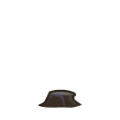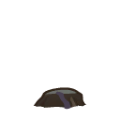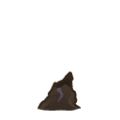Difference between revisions of "Polux tree"
(Edited it slightly for standardization. Funny how each dlc introduced a kind of tree, i deemed it best to standardize the intro of each tree.) |
|||
| (3 intermediate revisions by 3 users not shown) | |||
| Line 26: | Line 26: | ||
* Light pollution (25%-50%): 0 polux trees | * Light pollution (25%-50%): 0 polux trees | ||
* Moderate pollution (50%-75%): 1 polux tree | * Moderate pollution (50%-75%): 1 polux tree | ||
| − | * Extreme pollution | + | * Extreme pollution (75%-100%): 3 polux trees |
Polux trees never spawn within 16 tiles of each other. | Polux trees never spawn within 16 tiles of each other. | ||
| Line 37: | Line 37: | ||
* Is only 20% as fast as a [[wastepack atomizer]]. | * Is only 20% as fast as a [[wastepack atomizer]]. | ||
| − | Polux trees are considered "super", meaning that pawns with the [[Ideoligion#Trees|Trees: Desired precept]]{{IdeologyIcon}} will receive the "amazing tree" thought after seeing one. | + | Polux trees are considered "super", meaning that pawns with the [[Ideoligion#Trees|Trees: Desired precept]]{{IdeologyIcon}} will receive the "amazing tree" thought after seeing one. Despite both being [[dendrovore]]s, [[thrumbo]]s will not eat polux trees, while [[alphabeaver]]s will. Polux trees are immune to [[blight]]. |
| − | They technically take damage from [[toxic spewer]]s and [[toxic fallout]], but regenerate faster than they take damage | + | They technically take damage from [[toxic spewer]]s and [[toxic fallout]], but regenerate faster than they take damage. |
== Analysis == | == Analysis == | ||
| Line 45: | Line 45: | ||
The easiest way to use polux trees is to plant them nearby, and leave toxic wastepacks in a stockpile zone next to the tree. Wastepacks outdoors deteriorate into pollution every 8 days assuming no rain or cold temperatures, creating 6 tiles of pollution. | The easiest way to use polux trees is to plant them nearby, and leave toxic wastepacks in a stockpile zone next to the tree. Wastepacks outdoors deteriorate into pollution every 8 days assuming no rain or cold temperatures, creating 6 tiles of pollution. | ||
| − | In 8 days, a polux tree cleans {{#expr: (8*24)/10 round 1}} tiles. Meaning that a single polux tree can have a stockpile of {{#expr: ((8*24)/10)/6 round 1}} stacks of wastepacks deteriorating without being overwhelmed. However, this assumes that no rain ever increases the deteriorating rate of the packs. To avoid this, consider placing the stockpile next to a natural rock face to act as a support for a roof to cover the stockpile. | + | In 8 days, a polux tree cleans {{#expr: (8*24)/10 round 1}} tiles. Meaning that a single polux tree can have a stockpile of {{#expr: ((8*24)/10)/6 round 1}} stacks of wastepacks deteriorating without being overwhelmed. However, this assumes that no rain ever increases the deteriorating rate of the packs. To avoid this, consider placing the stockpile next to a natural rock face to act as a support for a roof to cover the stockpile. It is also possible to build a room that encloses the polux tree without infringing on its exclusion zone (while being partially unroofed) to ensure that all wastepack stacks that are under roofed tiles in the room deteriorate every 16 days. |
An other easy (and free) way of using the tree is to dump your pollution in a tile five to seven tiles away from yours, and when high enough in pollution, settle it as second base. This'll give access to 3 free trees and can use transport pods without penalty {{Check Tag|Verify}}. Still a lot should be considered before settling a 2nd base and there's a lot more uses for a second base than just 3 polux trees and other uses should be considered for it. | An other easy (and free) way of using the tree is to dump your pollution in a tile five to seven tiles away from yours, and when high enough in pollution, settle it as second base. This'll give access to 3 free trees and can use transport pods without penalty {{Check Tag|Verify}}. Still a lot should be considered before settling a 2nd base and there's a lot more uses for a second base than just 3 polux trees and other uses should be considered for it. | ||
Revision as of 14:00, 28 September 2024
| This article relates to content added by Biotech (DLC). Please note that it will not be present without the DLC enabled. |
| This article is a stub. You can help RimWorld Wiki by expanding it. Reason: Artificial building mechanics, analysis. |
Polux tree
After generations of exposure, these trees have evolved to metabolize pollutants. By drawing pollutants from the ground through wide root networks, they slowly clean polluted terrain in their vicinity. However, they cannot do this if buildings are constructed over their roots.
Unlike most methods of cleaning polluted terrain, polux trees do not create toxic wastepacks.
Base Stats
Plant Stats
The Polux tree is a tree added by the Biotech DLC. It grows within polluted environments and is capable of absorbing pollution in an area similar to a pollution pump (7 tile wide circle). Unlike pollution pumps, polux trees do not generate any toxic wastepacks after absorbing the surrounding pollution. This makes them a safer way to remove pollution.
Growing
Like the gauranlen tree![]() , the polux tree does not naturally occur in any ecology. It naturally appears on maps with pollution, and can be spawned by the "polux tree" event,
, the polux tree does not naturally occur in any ecology. It naturally appears on maps with pollution, and can be spawned by the "polux tree" event,
Every 15 days, the current pollution level and current tree population are checked. If the current amount of trees are below the assigned value, a tree may be spawned.[Chance?] These numbers also determine the amount of starting trees in your colony.
- No pollution (0-25%): 0 polux trees
- Light pollution (25%-50%): 0 polux trees
- Moderate pollution (50%-75%): 1 polux tree
- Extreme pollution (75%-100%): 3 polux trees
Polux trees never spawn within 16 tiles of each other.
Polux seeds can also be bought from traders or obtained from quest rewards.[Other ways?]
Summary
- Cleans 1 tile of pollution every 25,000 ticks (10 in-game hours).
- Needs 150,000 ticks (2.5 in-game days) to clean 1 deteriorated toxic wastepack (6 tiles).
- Is only 20% as fast as a wastepack atomizer.
Polux trees are considered "super", meaning that pawns with the Trees: Desired precept![]() will receive the "amazing tree" thought after seeing one. Despite both being dendrovores, thrumbos will not eat polux trees, while alphabeavers will. Polux trees are immune to blight.
will receive the "amazing tree" thought after seeing one. Despite both being dendrovores, thrumbos will not eat polux trees, while alphabeavers will. Polux trees are immune to blight.
They technically take damage from toxic spewers and toxic fallout, but regenerate faster than they take damage.
Analysis
| This section is suggested to be rewritten. Reason: Missing detail on use, utility as natural spawns, and pro-use side etc Also what is there is rough. You can help the RimWorld Wiki by improving it. |
The easiest way to use polux trees is to plant them nearby, and leave toxic wastepacks in a stockpile zone next to the tree. Wastepacks outdoors deteriorate into pollution every 8 days assuming no rain or cold temperatures, creating 6 tiles of pollution.
In 8 days, a polux tree cleans 19.2 tiles. Meaning that a single polux tree can have a stockpile of 3.2 stacks of wastepacks deteriorating without being overwhelmed. However, this assumes that no rain ever increases the deteriorating rate of the packs. To avoid this, consider placing the stockpile next to a natural rock face to act as a support for a roof to cover the stockpile. It is also possible to build a room that encloses the polux tree without infringing on its exclusion zone (while being partially unroofed) to ensure that all wastepack stacks that are under roofed tiles in the room deteriorate every 16 days.
An other easy (and free) way of using the tree is to dump your pollution in a tile five to seven tiles away from yours, and when high enough in pollution, settle it as second base. This'll give access to 3 free trees and can use transport pods without penalty [Verify]. Still a lot should be considered before settling a 2nd base and there's a lot more uses for a second base than just 3 polux trees and other uses should be considered for it.
Due to the tree's relatively low waste-clearing speed and the fact that low amounts of pollution do not have much impact on your colony, there is an argument that polux seeds are not worth their ![]() 1,200 price tag. As long as the pollution is physically far away, the only negatives of it are wastepack infestations and acidic smog. Polux trees do not stop infestations, as they occur on wastepack destruction, not pollution in general. Meanwhile, acidic smog can be mitigated almost entirely by using sun lamp greenhouses and non-solar energy. Even then, at only 10% or so pollution (200 wastepacks), smog is a rare event. that being said, in very long runs, a tree can absorb up to a considerable amount of waste. For example a single polux tree can absorb 245 wastepack in roughly 10 years which is equivalent to a single cooler's capacity in hot biomes, it is a lot when considering that a cooler takes a 9*9 area and 200W of constant power while tree's only cost is buying and setting it up and it can clean even more pollution.
1,200 price tag. As long as the pollution is physically far away, the only negatives of it are wastepack infestations and acidic smog. Polux trees do not stop infestations, as they occur on wastepack destruction, not pollution in general. Meanwhile, acidic smog can be mitigated almost entirely by using sun lamp greenhouses and non-solar energy. Even then, at only 10% or so pollution (200 wastepacks), smog is a rare event. that being said, in very long runs, a tree can absorb up to a considerable amount of waste. For example a single polux tree can absorb 245 wastepack in roughly 10 years which is equivalent to a single cooler's capacity in hot biomes, it is a lot when considering that a cooler takes a 9*9 area and 200W of constant power while tree's only cost is buying and setting it up and it can clean even more pollution.
A polux tree can clean a bit more than 1 toxifier generator's worth of waste, allowing for a form of clean energy. The tree cannot be placed near the generator, making you use a pollution pump and have colonists haul it to the tree. Although given how pollution doesn't spread under natural rock, it is possible to get around this by having the generator inside a 2*2 hole in the mountain with two sides open (one for wires, one for pollution) and a tree nearly overlap the generator to clean additional pollution also to get rid of artificial building limitation it can be placed in farmlands (and remove growing zone from under tree. Still, clean energy should be compared to 1. leaving wastepacks far from your colony and buying the polux seeds later, or 2. freezing the wastepacks. If you have no better use for silver, then you might as well buy the trees.
Gallery
Chopped polux stump variant A
Chopped polux stump variant B
Smashed polux stump variant A
Smashed polux stump variant B
Version history
- Biotech DLC Release - Added.
- 1.4.3555 - Polux seeds introduced, which can be planted on polluted ground.







